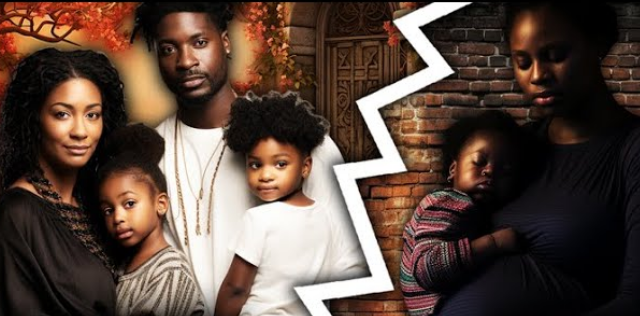By Black Economics
Photos: PBS\YouTube Screenshots
Risk lovers among us may be partial to “2 second cars” that accelerate from 0 mph. to 60 mph in just 2 seconds. During our 1960s youth, we were thrilled and felt chills just walking alongside the driver side of a Chevrolet Corvette, Ford Thunderbird, or Buick Riviera and viewing the first speedometers of American made cars that registered cruising speeds at or above 120 mph. It is instructive that only one of the three models mentioned (33%) remains in production today. A two-thirds reduction in any metric is likely to be impactful.
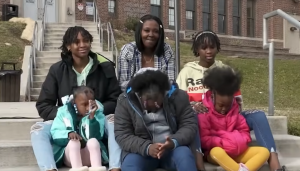
Now consider the Black American (Afrodescendant) experience. During the 1960s, and for a variety of unique reasons, we enjoyed enough solidarity to organize ourselves effectively, develop
and implement sufficient short-term—not long-term—strategies in response to unfavorable conditions, and to produce improved—not perfect by any means—outcomes.
However, instead of enhancing our unity and power over the past 60 years, we have increasingly fragmented our positions along religious, political, educational, and socioeconomic lines. The
reduction in our solidarity on these important fronts is akin to the reduction in the manufacture of “2 second cars” just discussed.
How did we allow this to occur? An immediate and often-heard response to the question is: “Leadership failure.” A reasonable retort is: “Leaders cannot be leaders unless they have followers.” Accordingly, we are reminded of a truth shared by the great Black American and Nobel Prize winning author Toni Morrison: “Great writers need great readers.” Applying that saying to this context yields: “Great leaders need great followers.” Perhaps it is the absence of great followers that caused the absence of great Black American leaders over the past 60 years.
We have imbibed the Kool-Aid in voluminous gulps. We are “drunk with the wine of world.” We have plunged our minds, bodies, and souls into a sea of individualistic materialism (tinsel, trinkets,
and bling) and forgotten the rich and most valuable communal wealth on the land where “our areas of influence” (communities) existed and exist.
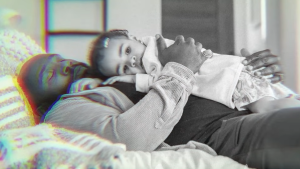
Importantly, all of this was enabled by a dismantling of our two most important institutions: (i) The family; and (ii) churches, mosques, temples, etc. When viewed historically among Black Americans, these two essential institutions can be viewed as one. Once upon a time, one’s family type was synonymous with one’s religion type.
Here are two stark statistics about which you may already be aware. First, about 60 years ago, over 60% of Black families with children were of the traditional (two parents) variety compared with
less than 40% today—a 33% reduction.[1,2] Second, the past nearly 60 years have produced little-to-no change in the percentage of Black American Protestant adults who attend church regularly:
It was a little below 40% in 1966 and just above 40% in 2022.[3,4]
The latter statistics engender no expectation of increased moral sentiments among Black Americans over the 60-year period. The absence of an increase in regular religious participation during this period of lightning-speed and unvirtuous secularization produced a decline in our moral sentiments—especially among our youth. The “Father of Economics,” Adam Smith, warned about the perils societies would confront without proper moral sentiments.[5]
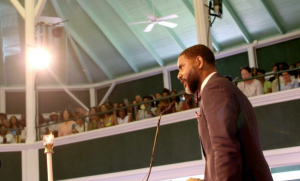
The purposeful dismantling of families and religious institutions engineered by oligarchs and plutocrats was, and is, intended to reduce our social strength, unity, and our ability to combat our exploitation. Oligarchs and plutocrats desire to expand and preserve perpetually their positions of authority and control. In your mind, are there naturally occurring conditions that parallel the extent of extreme disparities/inequalities between humans today? While it is commonplace to cite the non-superrich’s mental illness and to cancel them by feeding them mind numbing pills, the
absurdity of wealth hording by today’s superrich amidst obvious and increasing physical suffering and pain is a definite sign of sick minds.
This is not to suggest that a method for improving Black America’s current conditions should feature mainly efforts to improve leadership—although improved leadership could help. This is to
suggest that we each do our very best to rebuild and improve our two fundamental institutions so that we may generate a future world that is safer, healthier, more abundant, more supportive and
enabling of self-actualization, and more peaceful. If we do not move purposely on this today, then prospects for Black America’s rise tomorrow may disappear at the reverse speed of “2 second cars.”
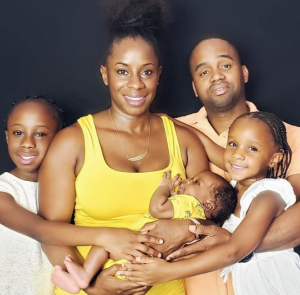
Dr. Brooks Robinson is the founder of the Black Economics.org website.
References:
[1] 1 The 1960 value appears in tables by Donald J. Hernandez (1993), America’s Children, Resources from Family, Government and the Economy. Russell Sage Foundation, New York, NY 1993, Tables 3.1, 3.6, and 3.11, calculated from 1940-1980 PUMS. https://aspe.hhs.gov/sites/default/files/private/pdf/172181/pf2.pdf (Ret. 052324).
[2] The 2020 value appears in Brad Wilcox, Wendy Wang, and Ian Rowe (2021). “Less Poverty, Less Prison, More College: What Two Parents Mean for Black and White Children.” Institute of Family Studies. https://ifstudies.org/blog/less-poverty-less-prison-more-college-what-two-parents-mean-for-black-and-white children#:~:text=Today%2C%2037%25%20of%20black%20children,Current%20Population%20Survey%20(CPS (Ret. 052324).
[3] The 1966 value appears in Norval Glenn and Erin Gotard (1977). “The Religion of Blacks in the United States: Some Recent Trends and Current Characteristics.” American Journal of Sociology: Vol 83, No. 2; po. 443-451) https://www.jstor.org/stable/2778298 (Ret. 052324).
[4] The 2022 value appears in Pew Research (2023). “How the Pandemic Has Affected Attendance at U.S. Religious Services.” https://www.pewresearch.org religion/2023/03/28/how-the-pandemic-has-affected-attendance-at-u-s-religious-services/ (Ret. 052324).
[5] See Brooks Robinson (2024). “The Irrelevance of Adam Smith’s TMS.” BlackEconomics.org; https://www.blackeconomics.org/BELit/tias051724.pdf (Ret. 052424)
